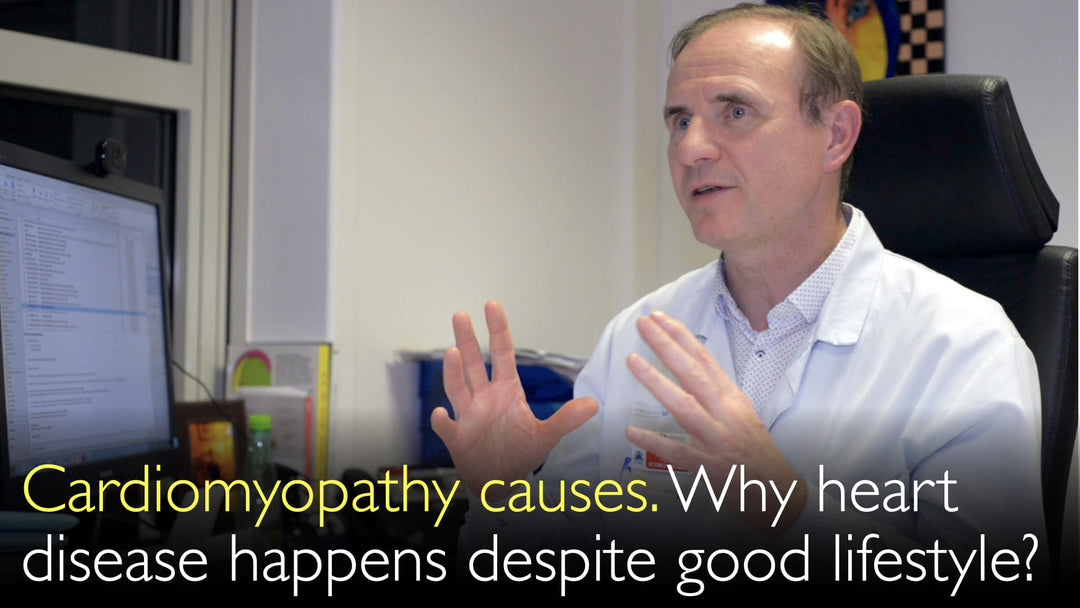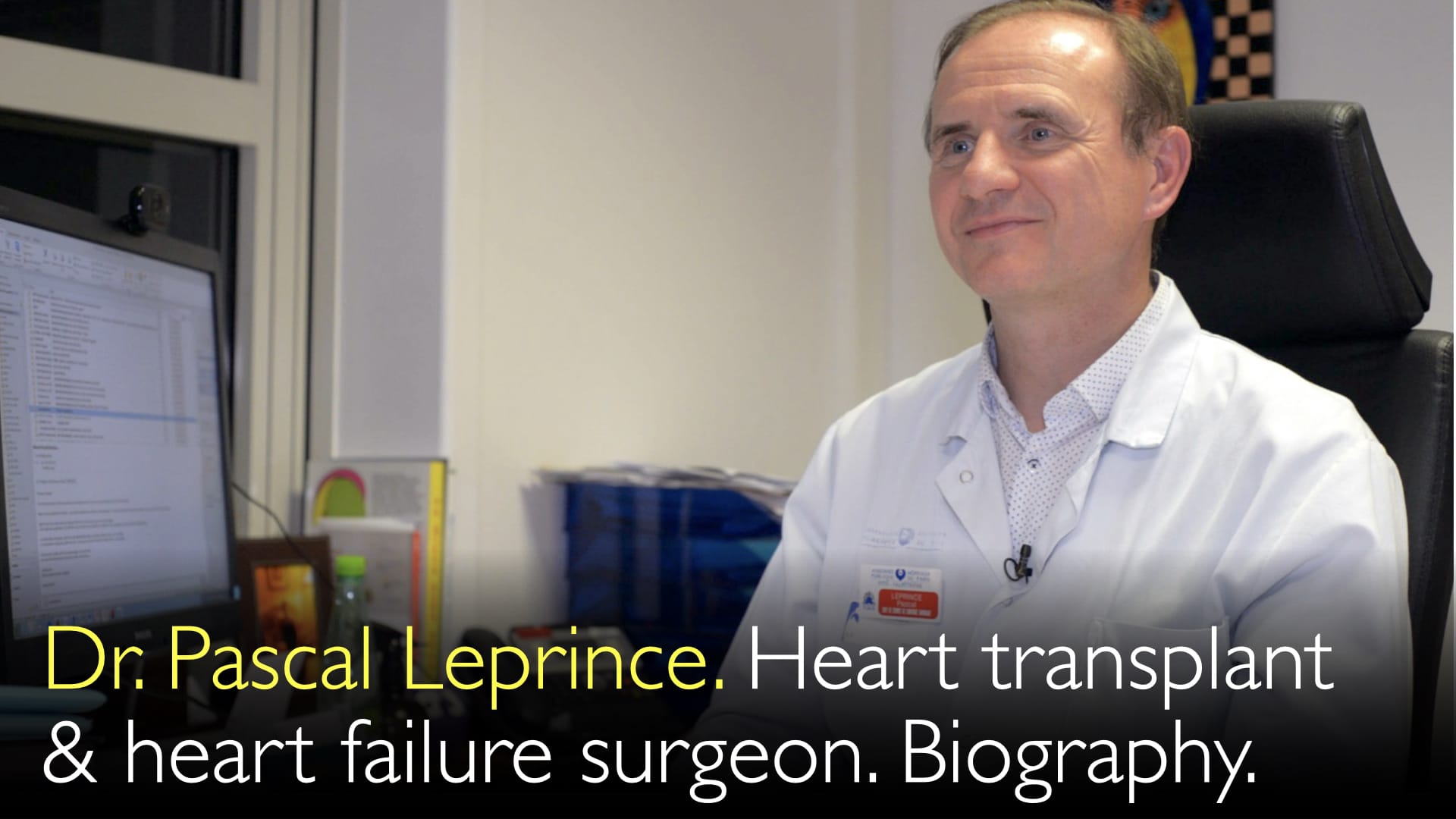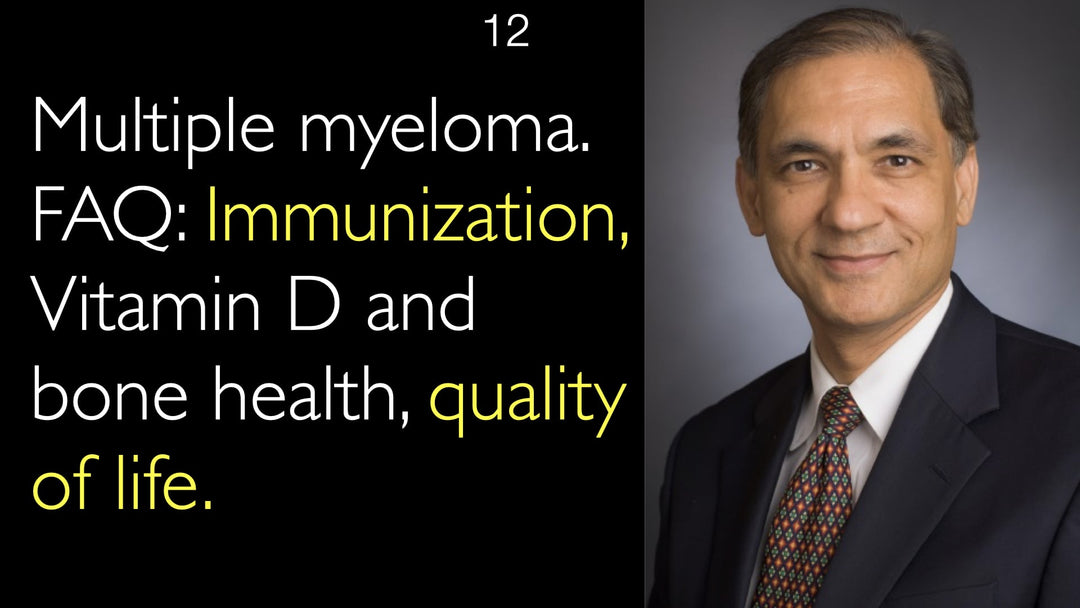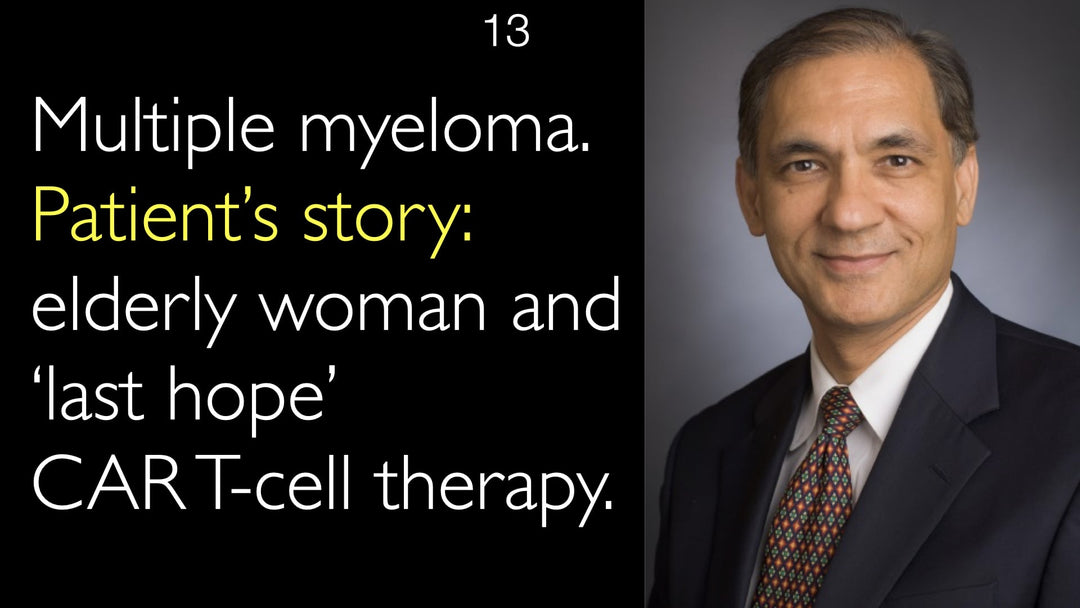Le Dr Pascal Leprince, MD, expert de renommée mondiale en transplantation cardiaque et cardiomyopathie, décrypte les causes multifactorielles de la cardiopathie ischémique. Il explique pourquoi certains patients menant une vie irréprochable peuvent néanmoins développer une coronaropathie sévère, tout en soulignant les limites persistantes de la science médicale. Le Dr Leprince insiste sur la nécessité de maîtriser les facteurs de risque établis, tout en reconnaissant les lacunes importantes qui subsistent dans la compréhension des mécanismes génétiques et biologiques sous-jacents à cette pathologie.
Comprendre les causes complexes de la cardiomyopathie ischémique et de la cardiopathie
Aller à la section
- Groupes d'âge des patients atteints de cardiomyopathie
- Facteurs de risque connus de la maladie coronarienne
- Cas de cardiopathie inexpliqués
- Théorie des vasa vasorum dans la maladie coronarienne
- Influences génétiques sur la cardiopathie
- Recherche future sur la cardiopathie
- Transcript intégral
Groupes d'âge des patients atteints de cardiomyopathie
Le docteur Pascal Leprince observe un chevauchement significatif dans l'âge des patients présentant différents types de cardiomyopathie. Il constate que les patients nécessitant une transplantation cardiaque pour cardiomyopathie ischémique sont souvent étonnamment jeunes. Selon lui, si la cardiomyopathie idiopathique apparaît généralement entre 50 et 60 ans, la forme ischémique sévère peut survenir encore plus tôt. Il n'est ainsi pas rare de rencontrer des patients atteints d'une maladie coronarienne sévère dès la quarantaine ou la cinquantaine.
Facteurs de risque connus de la maladie coronarienne
Le docteur Pascal Leprince confirme que la médecine a identifié plusieurs facteurs de risque majeurs de la maladie coronarienne et de la formation d'athérome. Parmi ces risques bien établis figurent l'hypercholestérolémie, la sédentarité, le sexe masculin, l'âge avancé, l'hypertension artérielle et le tabagisme. Il souligne l'importance cruciale de contrôler ces facteurs par des médicaments et des modifications du mode de vie, citant de nombreux essais cliniques qui confirment que la réduction du cholestérol et de la pression artérielle diminue significativement le risque cardiovasculaire.
Cas de cardiopathie inexpliqués
Un phénomène déroutant en cardiologie concerne les patients qui développent une maladie coronarienne sévère malgré un mode de vie apparemment irréprochable. Le docteur Pascal Leprince décrit des cas de patients n'ayant jamais fumé, avec un cholestérol normal et exempts de diabète, qui présentent pourtant une maladie coronarienne sévère. À l'inverse, il observe que certains individus aux habitudes néfastes – tabagisme et mauvaise alimentation – ne développent jamais de problèmes cardiaques. Ce paradoxe suggère que les facteurs de risque connus n'expliquent pas entièrement la pathogenèse de la maladie coronarienne.
Théorie des vasa vasorum dans la maladie coronarienne
Le docteur Pascal Leprince évoque des recherches novatrices sur des explications alternatives de la maladie coronarienne. Il mentionne notamment les travaux du docteur Axel Haverich, chirurgien cardiaque en chef à Hanovre, qui explore une approche différente. Cette théorie se concentre sur le rôle des vasa vasorum, les petits vaisseaux sanguins qui vascularisent les parois des artères de gros calibre comme les coronaires. Le docteur Leprince suggère que la santé et la vascularisation de la paroi artérielle coronaire elle-même pourraient être un facteur différenciant critique dans le développement de la maladie, un domaine qui nécessite des investigations plus poussées.
Influences génétiques sur la cardiopathie
Les antécédents familiaux restent un élément crucial du puzzle diagnostique pour les maladies coronariennes inexpliquées. Le docteur Pascal Leprince souligne qu'un historique de maladie coronarienne précoce sur plusieurs générations oriente fortement vers une cause génétique. Cependant, il relève aussi que de nombreux patients se présentent sans antécédents familiaux connus, ce qui complexifie le tableau. Il utilise une analogie frappante en affirmant que la science médicale actuelle ne comprend que « la partie émergée de l'iceberg » concernant les causes profondes des cardiopathies.
Recherche future sur la cardiopathie
La quête pour comprendre les mécanismes biologiques sous-jacents de la cardiomyopathie ischémique constitue une frontière majeure en médecine. Le docteur Pascal Leprince se montre optimiste quant à l'avenir de la recherche cardiovasculaire. Il est convaincu que dans les 50 à 100 prochaines années, la science percera les mystères expliquant pourquoi des patients à faible risque développent une maladie coronarienne sévère. Cette avancée nécessitera d'explorer « la partie immergée de l'iceberg », au-delà des facteurs de risque traditionnels, pour sonder la génétique, la biologie cellulaire et la physiologie vasculaire.
Transcript intégral
Dr. Anton Titov, MD: La cardiomyopathie ischémique est-elle plus fréquente chez les patients âgés que la cardiomyopathie idiopathique ou hypertrophique ? Ou ces groupes se chevauchent-ils complètement ?
Dr. Pascal Leprince, MD: Je pense qu'il y a effectivement un chevauchement. Les patients que nous voyons ici pour une transplantation cardiaque due à une cardiomyopathie ischémique sont assez jeunes. Il existe un recoupement entre les cardiomyopathies ischémique, idiopathique et hypertrophique.
Nous observons des patients avec une cardiomyopathie idiopathique vers 50-60 ans. Certains patients avec une cardiomyopathie ischémique sont encore plus jeunes, entre 40 et 50 ans, et présentent une maladie coronarienne sévère. Un deuxième avis médical est important. Une maladie coronarienne sévère chez des patients de 40 à 50 ans.
Dr. Anton Titov, MD: Pensez-vous qu'il existe une influence génétique significative sur la cardiomyopathie ischémique ? Ou est-ce davantage lié à un mode de vie sédentaire et à un cholestérol non contrôlé vers 30-40 ans, conduisant à une prise de conscience tardive vers 50 ans, quand les artères sont déjà obstruées par des plaques de cholestérol ?
Dr. Pascal Leprince, MD: La réponse n'est pas simple. Nous pensons connaître tous les facteurs de risque de la maladie coronarienne et de l'athérome : hypercholestérolémie, sédentarité, sexe masculin, vieillissement, hypertension, tabac. Tous ces risques sont établis.
Ce qui m'étonne, c'est de voir certains patients en consultation qui n'ont jamais fumé, ont un cholestérol normal, pas de diabète, et mènent une vie peut-être trop stricte, mais développent tout de même une maladie coronarienne sévère.
À l'inverse, certains patients négligent leur santé – ils fument, ont une alimentation riche en cholestérol, ne prennent pas soin d'eux – et ne développent pas de maladie coronarienne.
Ainsi, si certains patients développent la maladie en raison de facteurs de risque cardiovasculaires, ce n'est pas la seule explication.
Certains médecins travaillent sur les risques méconnus des cardiopathies. Le docteur Axel Haverich, chirurgien cardiaque en chef à Hanovre, explore un concept différent de la maladie coronarienne. Il serait intéressant de l'interviewer – c'est une sommité.
La vascularisation de la paroi de l'artère coronaire par les vasa vasorum pourrait jouer un rôle différenciant. Les vasa vasorum sont de petits vaisseaux qui vascularisent les parois des gros vaisseaux. Je n'en dirai pas plus, car je ne maîtrise pas suffisamment ce sujet.
Mais je suis convaincu qu'il existe d'autres explications à la maladie coronarienne au-delà du mode de vie. Bien sûr, les facteurs de risque sont très importants. Un cholestérol élevé doit être abaissé – de nombreux essais cliniques le confirment.
Je ne remets pas en cause la nécessité de rechercher activement ces facteurs de risque identifiés. Il est crucial de contrôler la pression artérielle, le cholestérol, le diabète. L'activité physique quotidienne est essentielle. Réduire ces risques est primordial.
Mais ce n'est peut-être pas toute l'histoire. D'où la présence de patients sans facteurs de risque qui développent tout de même une maladie coronarienne.
Dr. Anton Titov, MD: Dans ces cas, vous examinez sûrement leurs antécédents familiaux. Une maladie coronarienne précoce sur plusieurs générations pointerait vers une cause génétique.
Dr. Pascal Leprince, MD: Tout à fait. L'hérédité est un facteur de risque très important. Mais certains patients n'ont aucun parent avec une maladie coronarienne connue.
Nous ne comprenons encore que la partie émergée de l'iceberg, pas la partie immergée. Il est crucial d'explorer cette dernière en détail. J'espère que dans 50 ou 100 ans, nous en saurons plus sur les causes de la maladie coronarienne chez les patients à faible risque.








